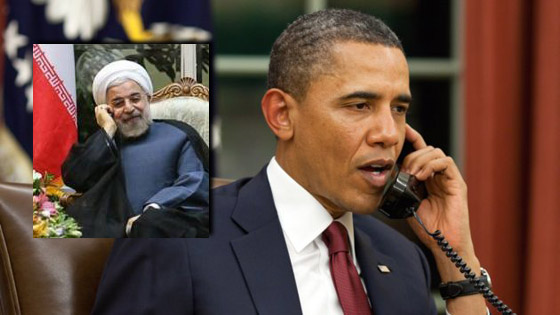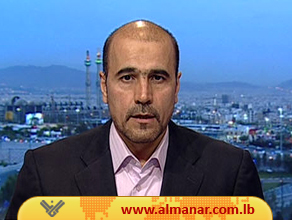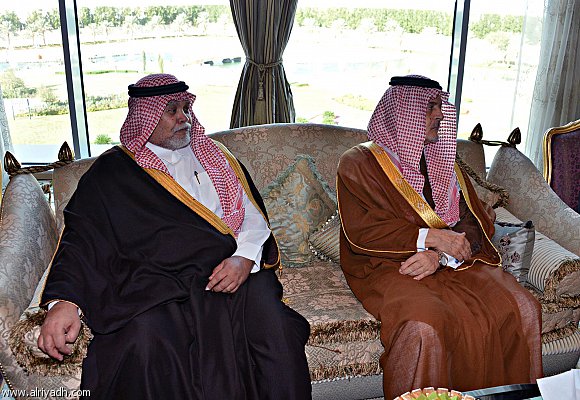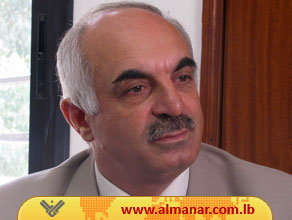Everyone affirms that the absence of a settlement means a definite war, which some regional parts have been seeking for. No one can deny that the files on the table are pivotal and of high sensitivity.
Israa Al-Fass
Approaches on statements about a wide settlement in the region differ among political analysts. While Some consider that the course of events points to an alleviation that will result from major agreements which might take some time to be concluded; a settlement that starts in Syria, to include negotiations on regional files, until coming out with a package drawing the future of the region as a whole, others prefer not to rush into “optimism”.
 Everyone affirms that the absence of a settlement means a definite war, which some regional parts have been seeking for. No one can deny that the files on the table are pivotal and of high sensitivity.
Everyone affirms that the absence of a settlement means a definite war, which some regional parts have been seeking for. No one can deny that the files on the table are pivotal and of high sensitivity.
Speaking to Al-Manar website, Lebanese political analyst Hussein Khalil considers that things are heading towards an impasse because the US demands are non-negotiable according to the Iranians. Khalil indicates that the United States still gives priority to the security of the Zionist entity while dealing with regional files, and clarifies that there is a basis which the Israeli is aware of, it is that the strength of Iran requires more of the occupying entity’s weakness.
In another interview, Lebanese expert in Turkish Affairs Mohammad Noureddine sees that the Syrian crisis is always subject to surprises despite all the points of strength which the Syrian Army gained on ground, considering that the interference of several elements, including the internal, regional, and international ones, adds to its complexity.
For his part, Iranian expert in strategic affairs Amir Al-Moussawi considers that there are indications that things are heading towards a possible agreement despite some pending files between the Islamic Republic of Iran and the United States, due to Iran’s adherence to its principles and the US’s leadership of the “axis of global arrogance”.
“Approach”: US trot towards Tehran
“The phone call which shook the Middle East” and the decision making countries in the Gulf, was writer in the Asharq Al-Awsat newspaper Abdul Rahman Al-Rashed’s description to US President Barack Obama’s phone call with his Iranian counterpart Sheikh Hasan Rouhani. Rashed pointed out that this phone call was more of an announcement about the initiation of a political movement which’s results cannot yet be determined.
 The US Administration, which does not base its actions on negotiations but rather on the facts on ground, was lately convinced that its only way out of the regional failure it had fell into was through Tehran. According to a report by Dr. Hussein Khalil, this is because Iran has wide influence in Iraq and good relations in Afghanistan. It is the number one ally of Syria which has stood firmly in the face of global assaults, and it is a supporter of the resistance movements which changed power equations in Lebanon and Palestine. Moreover, Tehran is accused of stimulating the Houthis file in Yemen, as it sympathizes with the wide public opposition’s demands in Bahrain, at a time when the US-Western bets on regional allies failed for over two years in toppling Syria.
The US Administration, which does not base its actions on negotiations but rather on the facts on ground, was lately convinced that its only way out of the regional failure it had fell into was through Tehran. According to a report by Dr. Hussein Khalil, this is because Iran has wide influence in Iraq and good relations in Afghanistan. It is the number one ally of Syria which has stood firmly in the face of global assaults, and it is a supporter of the resistance movements which changed power equations in Lebanon and Palestine. Moreover, Tehran is accused of stimulating the Houthis file in Yemen, as it sympathizes with the wide public opposition’s demands in Bahrain, at a time when the US-Western bets on regional allies failed for over two years in toppling Syria.
At this point, the Iranians did not exaggerate when talking about a serious “approach”, as the Iranian Foreign Ministry rushed after the phone call between Obama and Rouhani to assure that this did not mean normalizing relations between the two countries. Then Imam Khamenei’s statement came out to reassure that the “US Administration is untrustworthy… and it is a promise breaker,” and that the Iranian people have proved firmness in defending their rights and benefits, as well as their desire for peaceful coexistence.
Amir Moussawi says that the Islamic Republic of Iran valued some of the steps the US has taken, like that the American president did not sign the sanctions that were approved by the congress on the Iranian oil sale, as it appreciated the European Union’s stance on lifting sanctions on the Iranian merchant ships… However, it is still expecting more after it had expressed its readiness for full cooperation with the p5+1 states regarding its nuclear program.
The regional affairs expert explains that the US-Iran relations include two axes: Stances and benefits.
He assures that the first axis is suspended because it only leads to a dead end, for neither the US Administrations is ready to abandon the Zionist benefits, nor Iran is ready to abandon the Palestinian cause and resistance movements. Therefore, the two parts are convinced today that any understanding would be based on an agreement on the benefits of both countries first, to establish a wider understanding later on. Hence, Moussawi indicates that the pre-Geneva 2 period is more important than any announcement that will be made during the conference, as the results of the international conference are being arranged today, and the conference is only a chance to make the statement in and take memorial photos.
Rouhani’s visit in return for excluding Bandar and Faysal
“Many of those who awaited the Tomahawk missiles, as a punishment to the Syrian regime and a letter to the nuclear enriching Iranian regime, were trembled by the “phone call” news.” This is what General Manager of Al-Arabiya news channel Abdul Rahman Al-Rashed wrote in the Saudi Asharq Al-Awsat, clarifying that the “phone call” trembled decision making centers in the Gulf, Jordan, Turkey, Israel, and others.”
 The statement was followed by information revealed by Israeli Channel Two about a Gulf-Zionist meeting held in Tel Aviv. This information was later supported as media published the names of the Gulf delegation, which included: Saudi Intelligence Chief, Bandar Bin Sultan, National Security Advisor and Deputy Chief of Executive Council in Abu Dhabi, Hazza bin Zayed Al-Nahyan, in addition to Bahrain Intelligence Chief, General Adel bin Khalifa Al-Fadhel, who is one of the Gulf intelligence officers with the strongest ties with the “Mossad”.
The statement was followed by information revealed by Israeli Channel Two about a Gulf-Zionist meeting held in Tel Aviv. This information was later supported as media published the names of the Gulf delegation, which included: Saudi Intelligence Chief, Bandar Bin Sultan, National Security Advisor and Deputy Chief of Executive Council in Abu Dhabi, Hazza bin Zayed Al-Nahyan, in addition to Bahrain Intelligence Chief, General Adel bin Khalifa Al-Fadhel, who is one of the Gulf intelligence officers with the strongest ties with the “Mossad”.
In the same context, Saudi Foreign Minister Saud Al-Faisal’s refusal to read the kingdom’s annual speech in the US General Assembly, was also considered a clear message of objection to the US approach towards Iran.
The stubborn Saudi stance was accompanied with questions on President Rouhani’s intention to accept a Saudi invitation he received on the 15th of September to perform pilgrimage. However, he later decided to reject the invitation, in response to a point of view saying that any positive atmosphere established during the visit will be frustrated by the policies of the intelligence chief and the foreign minister.
In his statement to Al-Manar website, Moussawi further acknowledged that any Iranian-Saudi approach will solve many pending files and will help in restraining sectarian tensions. However, he points out that the moderate Iranian speech cannot be accepted by hardliners; so the price of an approach between the countries would be excluding figures like Bandar Bin Sultan and Saud Al-Faisal for the benefit of giving a bigger role for King Abdullah’s sons, like Prince Mutaib and Prince Abdul Aziz Bin Abdullah.
Failure of plot against Syria requires retirement of Bandar
The Iranians are aware today of their strong position after the failure of conspirators against Syria in toppling the regime and President Bashar Al-Assad. In addition, Syria is witnessing today a battle between armed opposition factions, especially between the so-called “Free Syrian Army” supported by Turkey and Islamic brigades supported by Saudi intelligence. This clash translates Turkey’s dissension from Qatar on one hand, and Saudi Arabia on the other.
Moussawi reassures that the conflict between opposition factions in Syria is deadly, and clashes between them are fiercer than those they engaged in with the Syrian Army.
Moreover, he considers that the military conflict raged today were over who would represent the opposition in any coming settlement, after Saudi took control over the “Syrian Coalition” headed by its man Ahmad Al-Jarba, and excluded Qatar’s man Mouaz Al-Khatib.
Bandar Bin Sultan thinks that the more he succeeded in “crushing” the “Free Syrian Army” and controlling crossings joining the Syrian territories with Turkey, Iraq, and Jordan, the more he would keep himself a role in the negotiations.
The intensified battles on ground and the control of Islamic brigades (Daesh, Islamic Army, Al-Nusra Front …) confirm information published earlier by British writer Robert Fisk, about talks, between members of the “Free Syrian Army” and a high-leveled source close to President Bashar Al-Assad, on possible negotiations between the government and “FSA” who believes in a Syrian solution for the war. The information was followed by news about members of the “Free Syrian Army” handing themselves as well as Armed Turkish factions fighting Islamic brigades over to the Syrian Army.
Deadly clashes today come after the failure of both axes in establishing the slogans they’ve raised in their war on Syria, for neither the Syrian Army collapsed, nor President Assad stepped down, or Syria abandoned the choice of resistance. Now who will pay the price for the failure of toppling Syria?
Analysts have said that Saudi Arabia’s engagement in the Syrian crisis came to reinforce the influence of the second generation seeking power in the country… specifically the sons of Prince Sultan Bin Abdul Aziz. So fights expanded in Syria to reach Iraq and Lebanon, in order to put pressure on Syria’s allies to change the power equation after the battle was close to an end.
Saudi officials engaged in the Syrian crisis as well as the sons of Prince Sultan, especially those in control of the Army and Intelligence will pay the price of this failure, for the benefit of the sons of King Abdullah and Prince Nayef… For their part, the Iranians bet on changes inside the Kingdom after the retirement of Bandar Bin Sultan and Foreign Minister Saud Al-Faisal -- who the Iranians refer to as a hard liner.
Turkey failed… and Qatar is paying the price!
Regarding Turkey, expert in Turkish affairs, Dr. Mohammad Noureddine considered that Turkey had set its goal since the beginning of the Syrian crisis, which was the fall of President Bashar Al-Assad. Hence, any settlement that excludes the fall of Assad will be a clear failure for Turkey.
 Dr. Noureddine agrees with analyses that say that Turkey is among the major losers in the region, especially after the fall of the Muslim Brotherhood rule in Egypt.
Dr. Noureddine agrees with analyses that say that Turkey is among the major losers in the region, especially after the fall of the Muslim Brotherhood rule in Egypt.
Speaking to Al-Manar website, he adds that “Erdogan’s government has lost the Kurds inside and outside Turkey because of its support to militants who clashed with the Kurds in Syria. It also lost an entire axis on the political, public, and social levels (Syria, Lebanon, Iraq, Iran), it lost a public trust which is hard to repair.”
However, Turkey’s greatest loss, according to Dr. Noureddine, would be if the Syrian crisis’s repercussions moved strongly inside Turkey, “especially if Al-Qaeda and its allies were one side of the clash in Turkey”.
In this context, analysts agree that Qatar was the “biggest loser” in this project.
“It was handed a mission, and when Qatar failed in performing its role in it, it had to suffer defeat,” Lebanese political analyst Hussein Khalil says.
The Western and US defeat was imputed to Qatar and the Americans later tried to evade the policies Qatar adopted, as former Special Advisor in the US State Department, Jeremy Shapiro, wrote for “Foreign Policy” that: “The tiny yet ambitious Gulf emirate has sought to use its immense hydrocarbon wealth to finance and arm civil wars in Libya and Syria, to support Hamas in Gaza, and to mediate disputes in Sudan and Lebanon. Their interests sometimes align with the United States's -- but too often, they do not.”
Shapiro further indicated that “Tamim is widely regarded as one of the architects of Qatar's Libya and Syria policy over the past two years, including his country's patronage of the Muslim Brotherhood.”
The US failure today is blamed on Qatar, as Shapiro threatened it saying that the US Administration wants to minimize Qatar’s influence in Syria and empower the Saudi role. He also urged the kingdom to receive the Qatari opposition or dissenters who do not recognize the legitimacy of the current regime.
He further indicated that “the US government could suggest that universities and think tanks invite members of collateral branches of the Thani family at odds with the emir and his branch to events in the United States and elsewhere to demonstrate splits, or at least the perception of splits, within the ruling family”.
In addition, “… the United States could consider embarking on a systematic campaign to publicize the deplorable conditions under which over a million migrant laborers work and live in the emirate. Such negative publicity could tarnish Qatar's reputation as it gets ready to host the 2022 World Cup.”
Qatar is well aware that it is the weakest card which the West will burn in any coming settlement. This is what the emirate is aware of, as sources say that it had started rearranging its news policies in the region. Behind the scenes, are also news that Qatar is sponsoring a deal to release the Lebanese abductees in Azaz, as a friendly message from the emirate.
Translated by Sara Taha Moughnieh